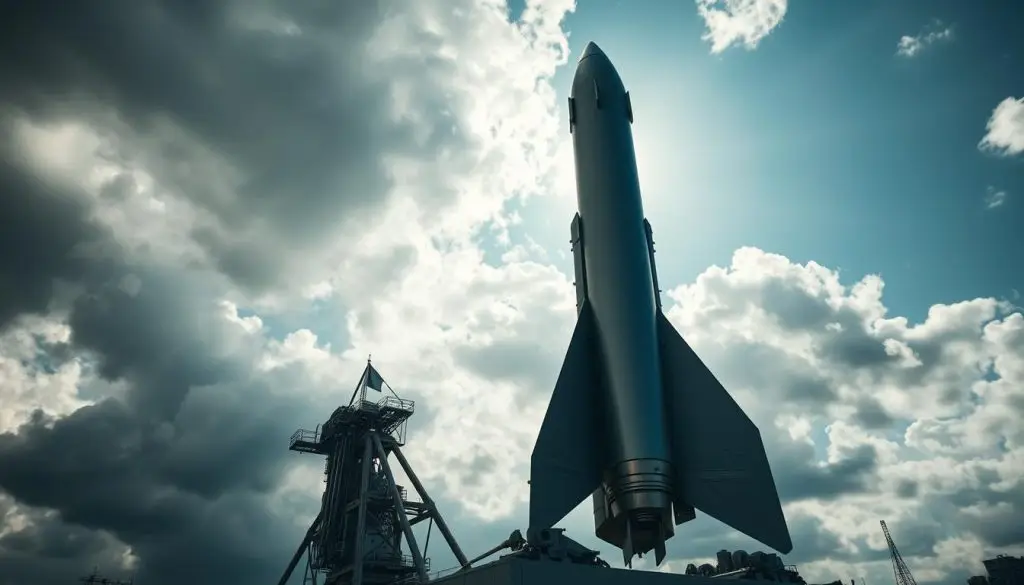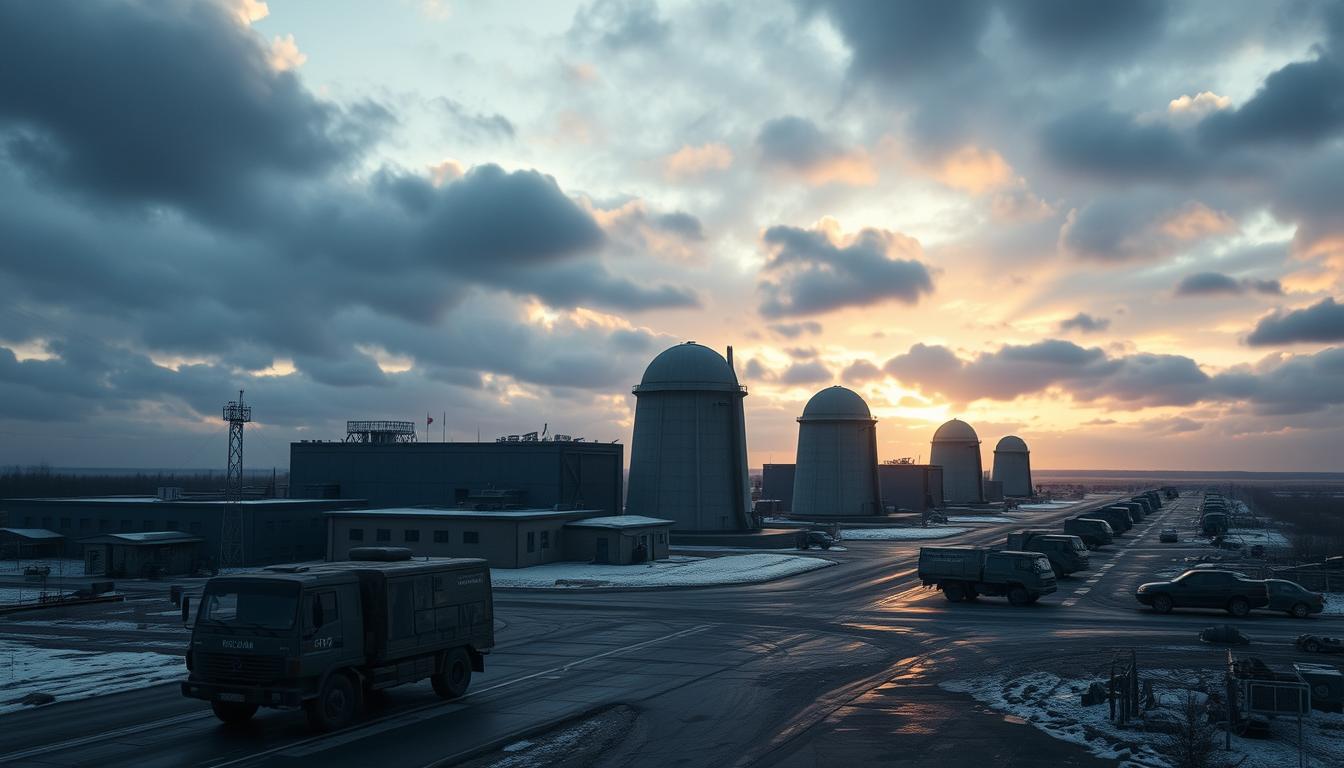Putin Tests Long-Range Nuclear Powered Missile After US Diplomatic Breakdown
Amidst heightened tensions, Putin authorizes a test of a cutting-edge Long-Range Nuclear Powered Missile, showcasing Russia’s advanced capabilities.

Long-Range Nuclear Powered Missile
Russia claims it has successfully tested a Long-Range Nuclear Powered Missile. This comes at a tense time in the Russia-Ukraine war. President Vladimir Putin said the Burevestnik cruise missile test was a success.
He also mentioned that Russia will start preparing to deploy the system. Military leaders said the missile flew for about 15 hours. It covered roughly 14,000 kilometers, showing rapid nuclear missile development and rising U.S.-Russia tensions.
The announcement came the same weekend Moscow launched another deadly strike on Kyiv. Ukraine reported casualties across the capital. Leaders are now pressing for more Patriot air defenses.
Also, a planned summit between Putin and former U.S. President Donald Trump fell apart. Washington rolled out new sanctions on major Russian oil firms. This news analysis explores why this test matters and how timing affects the broader standoff.
Putin said the weapon is unique in the world. His aides shared details with U.S. officials during a recent visit. Russian Chief of the General Staff Valery Gerasimov highlighted claims of evasion against anti-missile and anti-aircraft defenses.
He framed the flight as proof of endurance and stealth. For Moscow, the message is clear: infrastructure planning for deployment is next.
Burevestnik test details and NATO’s Skyfall codename add context as allies weigh the risks. The breakdown of high-level talks deepens U.S.-Russia tensions. It forces fresh debate over deterrence.
As the Russia-Ukraine war grinds on, nuclear missile development moves from theory to headline.
Long-Range Nuclear Powered Missile Key Takeaways
- Long-Range Nuclear Powered Missile
- Russia announces a successful Burevestnik test, citing a 15-hour flight and about 14,000 kilometers covered.
- The timing overlaps with U.S. sanctions on major Russian oil firms and the collapse of a Putin–Trump summit plan.
- Officials in Moscow claim evasion of anti-missile and anti-aircraft defenses.
- Casualties in Kyiv underscore how the Russia-Ukraine war shapes nuclear missile development and strategy.
- Putin signals deployment plans and infrastructure work for a system he says no other country has.
- Escalating U.S.-Russia tensions sharpen debates over deterrence and air defense needs.
Long-Range Nuclear Powered Missile Test: What Happened and Why It Matters
Russia recently tested a long-range nuclear powered missile, catching the world’s attention. This event shows how missile technology is evolving. It also highlights the importance of strategic defense capabilities among major powers.
Successful Burevestnik Cruise Missile Trial and Flight Profile
President Vladimir Putin announced the successful test of the Burevestnik cruise missile. General Staff Chief Valery Gerasimov said it flew for about 15 hours over 14,000 kilometers. This flight shows the missile’s endurance, thanks to nuclear propulsion.
The missile’s route included altitude changes and long loiter times. This shows its ability to stay hidden and strike from unexpected angles.
Timing Amid U.S. Diplomatic Breakdown and New Sanctions
The test happened during a tense week in diplomacy. A planned meeting between Putin and Donald Trump was canceled. The U.S. had just imposed new sanctions on Russian energy firms.
This timing made the missile test even more significant. It sparked debates in Washington and Brussels about defense capabilities and deterrence upgrades.
Claims of Evasion Against Anti-Missile and Anti-Aircraft Defenses
Gerasimov said the missile tested evasive maneuvers against defenses. It flew low, near 50 meters, to evade radar. This makes it harder to intercept.
Such tactics align with reports on Burevestnik’s capabilities. If used in real operations, they could challenge air defense systems across long coastlines.
Deployment Plans, Infrastructure Preparation, and Strategic Defense Capabilities
Putin said Russia will plan for the missile’s deployment and prepare the infrastructure. This includes basing, logistics, and training, all of which are costly.
Domestic security alerts in Moscow and flight restrictions at Zhukovsky and Domodedovo framed the test. Ukraine’s escalating aerial warfare and NATO’s support for Kyiv highlight the missiles’ impact on defense strategies.
As Russia shows off its new defense capabilities, Western planners are considering their responses. The battle between long-range missiles and air defenses is reshaping deterrence. This is a key area of focus for those watching Moscow’s moves.
Advanced Missile Technology and the Geopolitical Context
Russia is testing new missiles and talking about defense. They show off nuclear propulsion technology and range claims. This shows a shift in power in the sky.
Nuclear Propulsion Technology and Missile Range Capabilities
General Valery Gerasimov said a missile can fly for 15 hours and 14,000 kilometers. This suggests it can stay in the air for a long time. It can also change direction easily.
This technology enables missiles to go almost anywhere. A small reactor in the missile means it can stay in the air longer. It can also come from different angles, making it hard to catch.
These missiles can carry nuclear or conventional bombs. They can stay in the air for a long time. This makes them hard to catch because they can avoid radar.
For more on this missile, see this article about its unlimited range.
“No One Else in the World Has It”: Military Innovation and Cutting-Edge Missile Systems
President Vladimir Putin said Russia has something no one else does. This shows Russia is leading in military innovation. They are showing off new ways to attack.
Russia is also working on other missiles, such as the Sarmat ICBM and the Avangard glide vehicle. These missiles offer different attack options. This makes it hard for others to know what to expect.
Strategic Nuclear Forces Drill and Command-and-Control Readiness
Before the test, Russia did a drill under Putin’s watch. The drill tested how well the staff could work together. It showed Russia is ready to act.
This drill shows Russia’s focus on being ready. It’s not just about the missiles. It’s about how well they can be controlled.
Defense Industry Advancements vs. National Security Weapons Concerns
Some people see the new missiles as a big step forward. But others worry about the dangers they pose. Recent attacks in Ukraine have made these concerns even more urgent.
There are also worries about drones and air alerts. People are asking for more defense systems. This shows the need for national security weapons.
Drone interceptions and airport closures show the impact on daily life. The same technology that makes missiles better can also cause problems. For more on this, see this article on Russia’s nuclear force.
Long-Range Nuclear Powered Missile Conclusion
Russia’s claim of a successful Burevestnik flight is a big deal. It lasted about 15 hours and covered nearly 14,000 kilometers. This shows Russia’s advanced missile technology.
The test also showed how Russia’s missiles can evade air and missile defenses. This is a significant change that the U.S. and NATO must take seriously. Now, national security weapons focus on speed, endurance, and stealth.
The timing of the test made it even more critical. Diplomatic talks between the U.S. and Russia were failing. New U.S. sanctions on Russian oil firms and attacks on Kyiv further heightened tensions.
Ukraine is now pushing for Patriot systems to defend against the attacks. Reports show almost 1,200 drones, over 1,360 guided aerial bombs, and more than 50 missiles in a week. This has made discussions about national security weapons and alliances more urgent.
Vladimir Putin sees Burevestnik as a showcase for Russia’s advanced systems. He wants to define how it will be used and has prepared the deployment infrastructure. A recent drill showed Russia’s readiness to use its strategic nuclear forces.
At home, Russia has faced drone interceptions near Moscow and flight restrictions at key airports. These actions have added to the tension. The casualties in Belgorod have also raised concerns.
Abroad, the diplomatic chill between Russia and the U.S. has grown. A canceled summit and new sanctions have made things worse. This has led to increased security concerns.
Recent incidents, like a U.S. base incident and warnings about long-range missiles, highlight the stakes. The Burevestnik test shows how advanced technology is changing the game. It sets the stage for tough decisions on deterrence and alliances.








